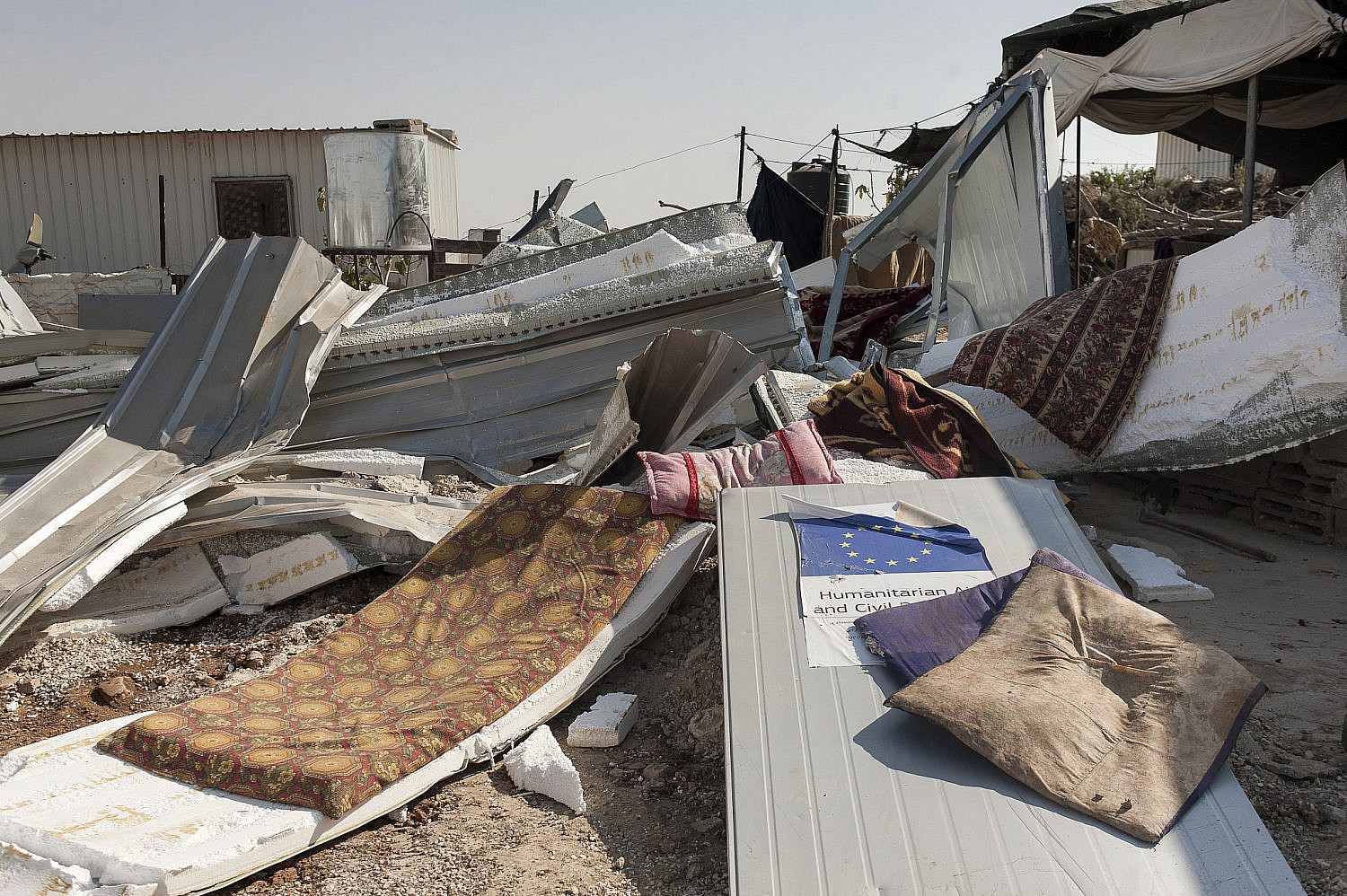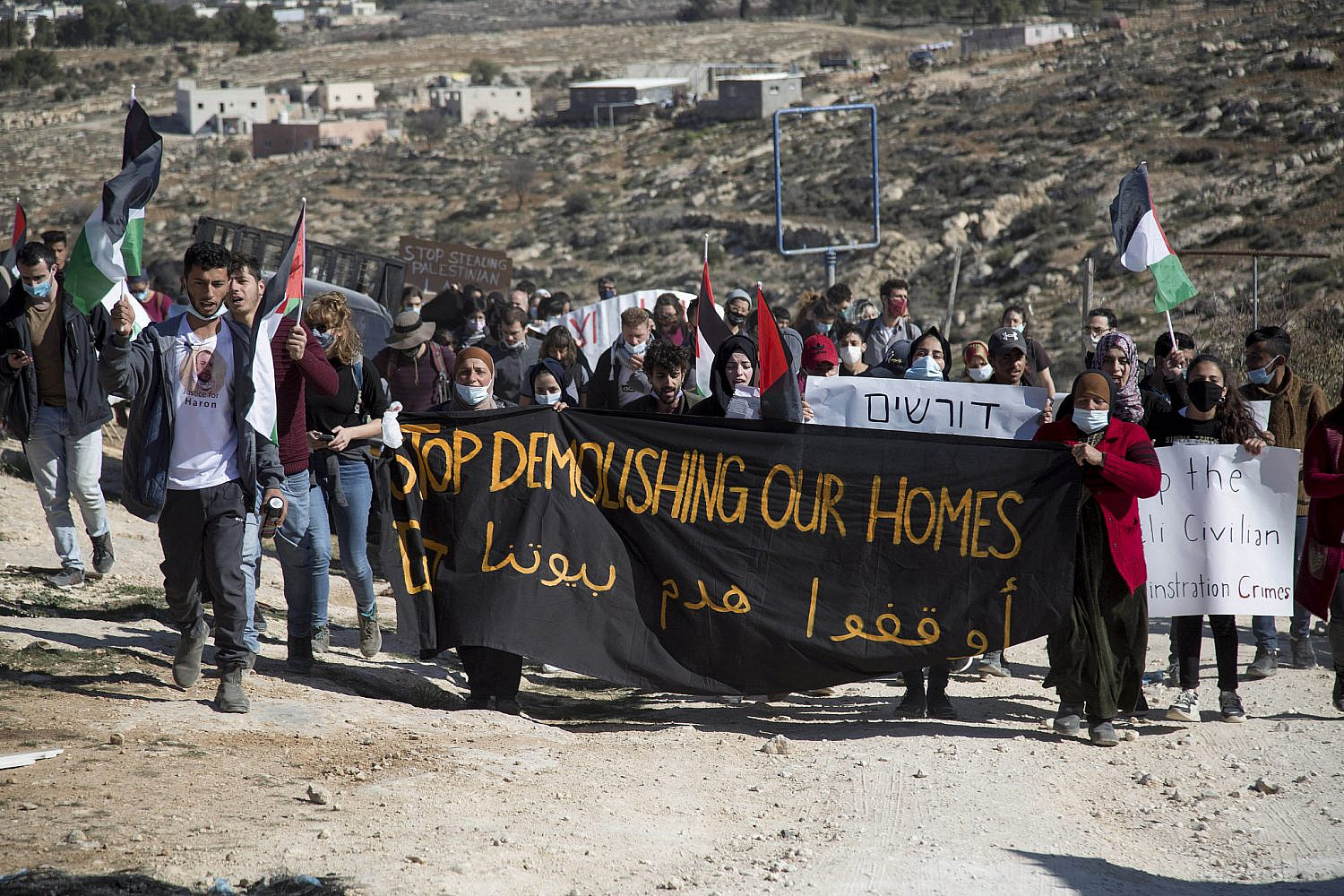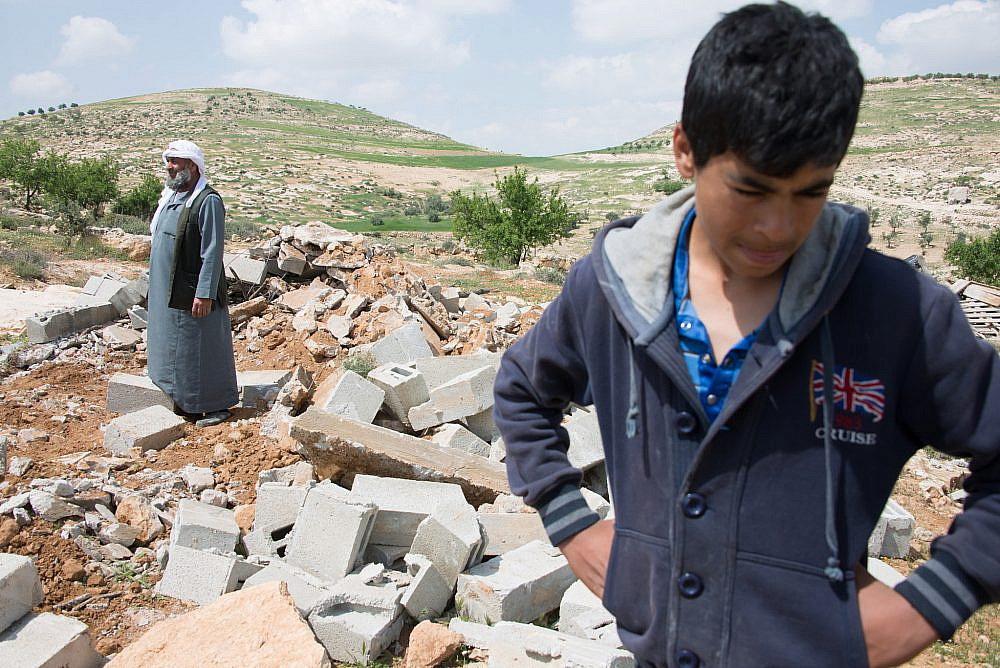Our long history of demolitions in Palestine has taught us two things: violence is always around every corner, and the Israeli occupation never rests. But although this is our reality, we still dream of having normal lives, of spending time with our companions, going on leisure trips, getting married, and having children.
A few years ago, my three friends and I woke up early one morning in our village of Umm al-Khair in the South Hebron Hills to take a trip to the north of Palestine. It was an outing we had been planning for a long time. We don’t earn much, so we had to save and sacrifice for a long time to gather the money for the trip.
My cousin Ahmad, who wanted to become a photographer, was especially excited — for him, this was a chance to experience new places, and to pursue his dream of capturing images of a life he had never fully lived. He bought a camera just for this trip. We talked about all the sites we would see and the adventures we would have. Each one of us had their own vision for this special trip.
But as we gathered at the entrance to our village, waiting for our transportation for the day, we heard that terrifying noise we had heard so many times before. Within seconds, rows of Israeli military jeeps and bulldozers rolled toward our village, accompanied by officials from the Israeli Civil Administration, the arm of the military government that rules over Palestinians in the occupied territories.
We were all overcome with fear, knowing what the day now had in store for us. In those moments before a demolition raid, we Palestinians don’t just experience the fear of what might happen: we are consumed by the fear of all the events that happened before. On these days, we don’t just live through one home demolition — we live through them all.

In these harrowing moments, there is always a point at which our souls break free of the trauma and reach out to the heavens praying for help and protection. As we saw the authorities approaching, we froze as if to say, “please do not do this, God.”
The convoy drove past our village’s entrance, and for a brief moment, we thought that God had, indeed, spared us that day. But then we saw the army close off several roads east of the village, and after that, they entered our community.
The road closures ensure that activists from the surrounding area are not able to reach the community and document the home demolitions; for the Israeli military, it isn’t enough to destroy our homes, it must also control the narrative of their actions. They don’t want the world to see soldiers beating old men, or frantic mothers holding their crying and terrified children. The army needs to make the world believe that destroying a home is a legal and moral decision.
The moment we saw the army about to close off the paths to our community, my friends and I ran to our loved ones. Not because we could protect them — there is little we can do in these situations — but rather just to be there to support our families and friends emotionally.
We were lucky that Ahmad had his new camera at the time, and was able to document everything that happened that day. It is important for us to share our story with the world, and perhaps shed a little more light on what happens under the darkness of Israel’s military rule.

On days such as these, the camera allows us to capture more than just the Israeli bulldozers smashing our homes. It captures the gravity of these demolitions and exposes the devastating impact they have on our communities. People sometimes forget that these homes are not just made from physical materials, they are built with life, love, and precious time.
One of the friends accompanying me that day, for example, was recently married and had spent his life savings to build his small home. Many can relate to being newly married, to that time in a relationship when the future is wide open, and the possibilities seem endless.
It was therefore hard for us to watch through the lens of a camera as our close friend’s life was demolished. When you hold the camera, everything runs through your mind at once: you can hear in your head your own plea to God not to destroy this home, and to spare your friend. Oftentimes we want to just leave and let the pain go, but we also know we have to sit with the trauma in the hope that the story we share will change the minds of those who allow the Israeli occupation to continue.
When you’re witnessing the demolition itself, it feels as if the destruction and all the thoughts and emotions that go with it are carrying on for hours. In reality, it takes only a few minutes of work to dismantle our lives. With each demolition, it seems as if the Israeli military has become better at executing the destruction of our village. Five homes were destroyed and 36 people were displaced that day — and it all happened so quickly.
The sense of time in these situations is what makes everything so surreal for us. It is like a nightmare we cannot escape — and that we must relive again and again.

